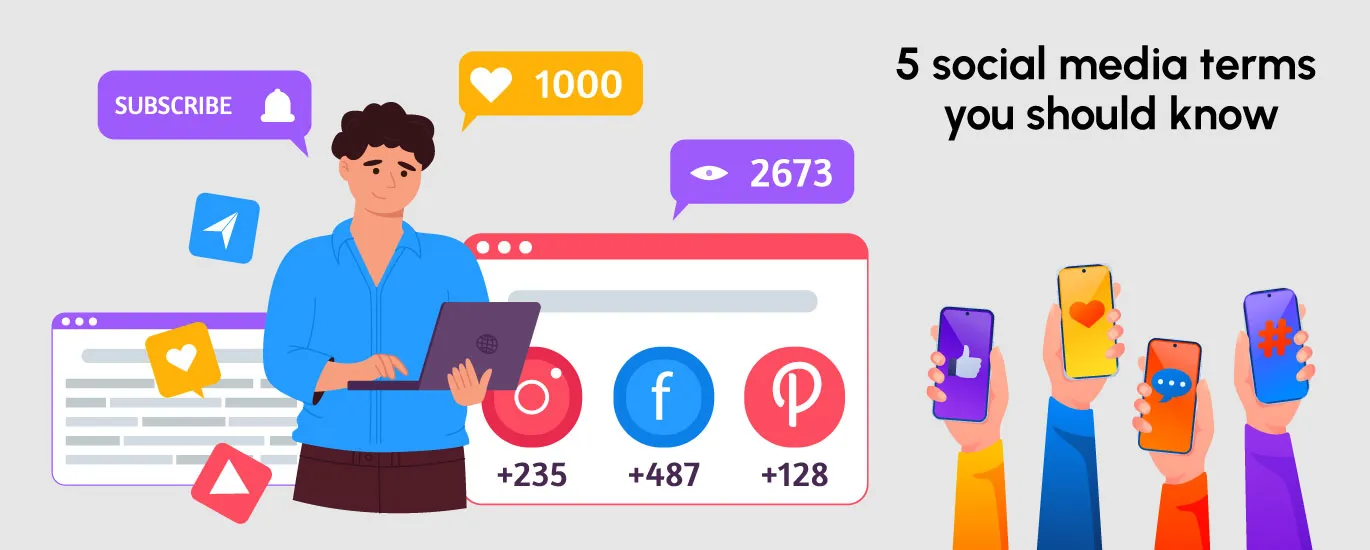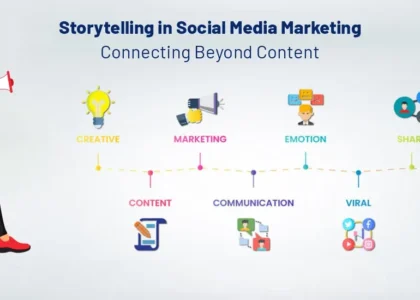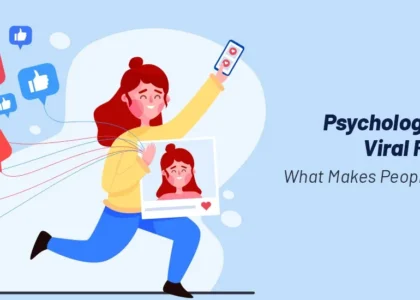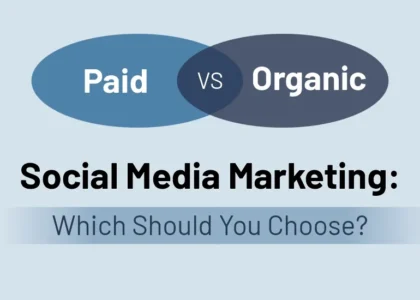Want to connect to the generation with a deeper level of understanding? Master the trending social media terms to grab their attention and be relatable.
Introduction to Social Media Terms
As we know, social media is a platform that connects the world in a single place. The common social media language makes it easier for people to connect and understand each other. Brands use these terms with social media marketing strategies to connect with people on a deeper level and create mutual understanding. Brands must learn and share a common language the brand and its audience understand.
To make it easy for you, in this blog, we will explore 5 common social media terms you should know!
1. Ephemeral content
Ephemeral content is a social media term for short-loved content or content that stays posted for a small period, usually 24 hours. It is also called disappearing content and is common on platforms like Instagram or Snapchat.
This type of content is popular and highly engaging among users because it creates a sense of urgency and exclusivity among the users and people don’t want to miss out on the short-lived content. It also creates an authenticity and casual vibe for the audience.
Some examples of this kind of content are:
- Instagram stories
- Snapchat snaps
- Facebook stories
2. User-generated content (UGC)
User-generated content or UGC, is content created by the users about a brand or its products that is shared by the user or/and by the brand. The content can be in the form of photos, videos, reviews, etc.
This kind of content is engaging, gets the audience’s interest, and is beneficial for both the brand and its audience, as this kind of content is shared to give audience product reviews, using tips and brand insights, etc., while for the brand it works as cost-free marketing and content creation.
There can be many kinds of user-generated content like Customer reviews, campaign posts, YouTube testimonials experience statement videos, etc.
3. Social proof
Social proof refers to influencing other people’s actions and opinions about a brand or products and services. This helps in decision-making and initiates trust for the brand among the audience.
This social media term is well known online, as people tend to trust others, especially fellow audiences. Social proof builds credibility and trust among viewers for the brand and eventually develops into loyal followers and customers.
There can be many types of social proof, such as reviews on shopping sites, post likes, shares, positive comments, UGC, etc.
4. Omnichannel marketing
Omnichannel marketing refers to a customer-centric approach to providing a seamless and high-quality customer experience across multiple channels. It can be apps, websites, and physical stores. Customers having an elite experience consistently anywhere turns them into loyal customers.
Omnichannel marketing is the fusion of social media marketing and traditional marketing, which makes it useful and well-known among social media and brands use this to provide their customers with a smooth and effortless experience and build brand image.
For example, a brand sending promotional emails, offering mobile app services, regulating social media consistently, and offering physical stores is omnichannel marketing.
5. Content pillars
Content pillars are the initially decided themes and topics that are the base of a brand’s content creation. This social media term is highly used online as they are a crucial part of social media marketing and overall content posting. A brand needs to decide its goals, target audience, and purposes of the content with the content pillars and help the brand create and share personalized content accordingly.
Content pillars are widely used in social media marketing for their usefulness in making content strategies, focusing on consistent and relevant content creation, and improving SEO.
For example: A fitness brand can make content pillars like “fitness workout tips,” “dietary advice for nutrition,” and “fitness challenges,” etc.
Conclusion
Social media marketing is only effective if you resonate with your audience and build connections, and staying aware of social media terms helps brands create trust and credibility and make meaningful bonds with the audience, posing positive effects on the digital success of the brand. By understanding simple social media terms like ephemeral content, user-generated content, social proof, omnichannel marketing, content pillars, etc., brands can take steps towards effective marketing, trust building, and achieving their digital goals.
FAQs
Q1: What are social media terms?
Ans: Social media terms are words or phrases commonly used online to describe social media marketing strategies, trends, or tactics.
Q2: Are social media terms important?
Ans: Yes, for brands and social media marketers, understanding social media terms is important for creating effective content, staying relevant, and engaging your audience.
Q3: How can I encourage my audience to create UGC?
Ans: You can run campaigns and contests or ask your followers to share their experiences with your products or services.
Q4: Is ephemeral content effective?
Ans: Yes, ephemeral content is effective as it creates a sense of urgency and exclusivity, encouraging followers to engage quickly and interact with your brand more frequently.
Q5: Can social proof influence buying decisions?
Ans: Yes, social proof like positive reviews, customer experiences, and testimonials work well to influence the buying decisions of the audience.





